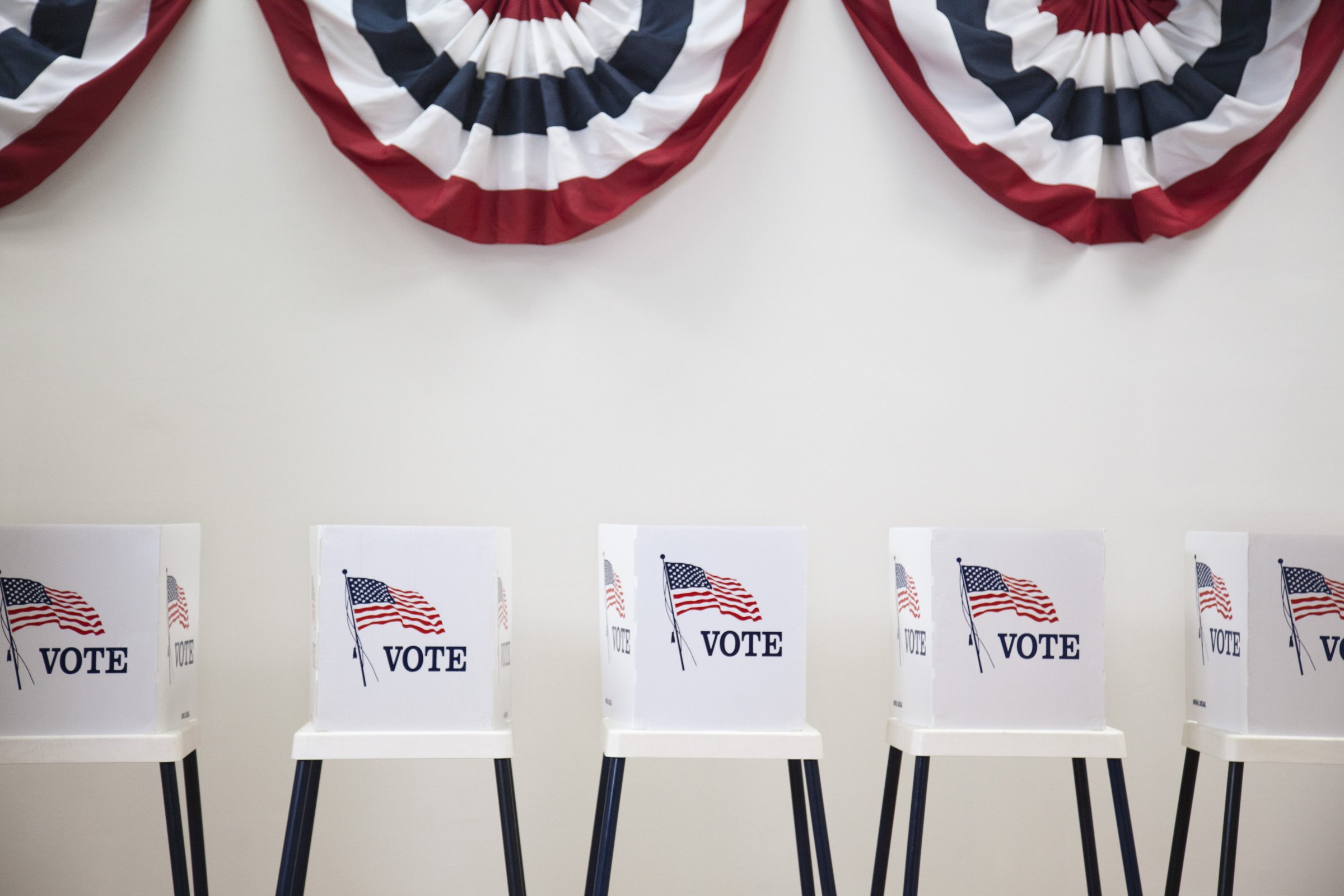
With just 13 days to go until the Iowa caucuses, it’s tempting to look to the polls for predictions about how it is going to play out.
Donald Trump certainly treats his frontrunner status as gospel, often simply reciting favorable poll numbers to his crowds. But an analysis of polling data from previous elections shows that, even with less than two weeks until the first votes are cast, it is still too early for polls to be predictive.
In four of the five previous presidential elections, the leaders in national polls 13 days out from the Iowa caucuses failed to capture the nomination. And in three of the five, the polls weren’t even predictive of the winner in Iowa.
This could spell trouble for Trump and Hillary Clinton, who have both been seated comfortably atop the polls for months. At this point, it is still anyone’s game.
Here’s a look at the contested primary battles back to 2000, and how the national polls about 13 days out from the first in the nation caucuses stacked up.
Read More: Trump and Cruz Tussle as Iowa Caucus Looms
2012: Republicans
Who won the nomination: Mitt Romney
Who won Iowa: Rick Santorum
What the polls said: At this point in the 2012 election, most national polls at Romney neck-and-neck with Newt Gingrich, with Santorum far behind. A CNN/ORC poll from about 13 days out had Romney and Gingrich tied at 28%, with Santorum at 4%. Even in polls just of Iowa voters, Santorum was behind Romney. But Santorum came back in a huge long shot to win Iowa, barely edging out Romney.
What it means: In this case, national polls at this point ended up being largely predictive of the eventual nominee: Romney was up already, if close with Gingrich. But the polls belied a huge surprise at the Iowa caucus, so it shows that a dark horse such as Florida Sen. Marco Rubio could unseat Trump when the first votes are cast.
2008: Republicans
Who won the nomination: John McCain
Who won Iowa: Mike Huckabee
What the polls said: In most national polls about two weeks from the Iowa caucuses, McCain wasn’t even in second place. Many polls had Rudy Giuliani and Huckabee in first and second place, with McCain far behind. For example, a Reuters poll at this point at Giuliani at 23%, Huckabee at 22%, and McCain at 12%.
What it means: Although Giuliani was sometimes in first, Huckabee’s strong showing in the polls meant that it wasn’t a total surprise when the preacher took Iowa. But the eventual nominee, McCain, didn’t surge in the polls until later. It could play out similarly this year if Trump takes Iowa, then fades as a more establishment candidate rises later in the year.
Read More: Iowa Caucus Math Gives Sanders A Boost
2008: Democrats
Who won the nomination: Barack Obama
Who won Iowa: Barack Obama
What the polls said: In almost all national polls, and even in most Iowa polls, Hillary Clinton was leading Obama by a comfortable margin two weeks before the Iowa caucuses.
What it means: For the Democrats in 2008, polls at this point were not predictive of either the Iowa winner or the nominee. This is the second time Clinton is heading into Iowa in a strong frontrunner position, but history tells her this doesn’t mean she should feel too secure.
2004: Democrats
Who won the nomination: John Kerry
Who won Iowa: John Kerry
What the polls said: At this point, almost all polls pointed to Howard Dean as the winner, often with him leading Kerry in the double digits of percentage points. Kerry’s huge upset in Iowa was a real turning point, helping revive his lagging campaign and carry him to the nomination.
What it means: Iowa is a notoriously bad predictor of which candidate ends up winning the nomination. But as in 2004 with the Democrats, sometimes a win at Iowa can create just the momentum a flagging campaign needs. It shows that even presumptive Iowa darlings can falter.
2000: Republicans
Who won the nomination: George W. Bush
Who won Iowa: George W. Bush
What the polls said: Bush was already way up nationally before Iowa; a NBC/WSJ poll even had him leading John McCain 63% to 15%. Bush went on to win both Iowa and the nomination.
What it means: So, it can happen. In 2000, the polls were accurate in predicting both the winner of Iowa and the nominee. This is what Trump seems to think is going to happen this year, with his constant touting of his strong poll numbers.
2000 – Democrats
Who won the nomination: Al Gore
Who won Iowa: Al Gore
What the polls said: Al Gore was leading the Democratic pack at this point in 2000, and his strong poll numbers carried him to a win in both Iowa and the primary.
What it means: As stated above, the polls two weeks out from Iowa in 2000 ended up being accurate for both Iowa and the winners of the two primaries. If that happens in 2016, it means we’ll be seeing a Clinton versus Trump match-up in the fall.
– With additional reporting by Pratheek Rebala
More Must-Reads from TIME
- Cybersecurity Experts Are Sounding the Alarm on DOGE
- Meet the 2025 Women of the Year
- The Harsh Truth About Disability Inclusion
- Why Do More Young Adults Have Cancer?
- Colman Domingo Leads With Radical Love
- How to Get Better at Doing Things Alone
- Michelle Zauner Stares Down the Darkness
Write to Tessa Berenson Rogers at tessa.Rogers@time.com